What is an SAP module?
Discover our guide to SAP modules for optimizing your business processes.
You are here : Home " SAP Guide "SAP module
When we talk about SAP, we're not talking about a single piece of software, but a modular ERP system.
Each SAP module represents a specific functional area of the company. These software bricks enable SAP to adapt to all business needs: accounting, logistics, inventory management, human resources, production, and so on.
A module is a functionality grouped around a theme, designed to manage a well-defined business process.
For example, the FI (Financial Accounting) module is used to automate general accounting, while the MM module (Materials Management) manages purchasing, inventory and suppliers.
SAP modules are interconnected: they share data in real time, communicate with each other, and provide a global view of the company's operations.
It's this modular structure that makes SAP so powerful... and so essential for companies of all sizes.
💡 In short: a SAP module is a specialized functional unit in a specific area of a company's activity, integrated into a comprehensive, customizable and scalable ERP system.
🛠️ What is the purpose of an SAP module?
An SAP module is used to digitize, automate and structure an entire area of a company's activity. It is designed to meet a specific business need: inventory management, production tracking, accounting management, human resources planning...
Each module provides a dedicated software solution, integrated into the overall SAP system. Rather than having an isolated tool for each department, the company centralizes all its data and processes in a unified ERP system.
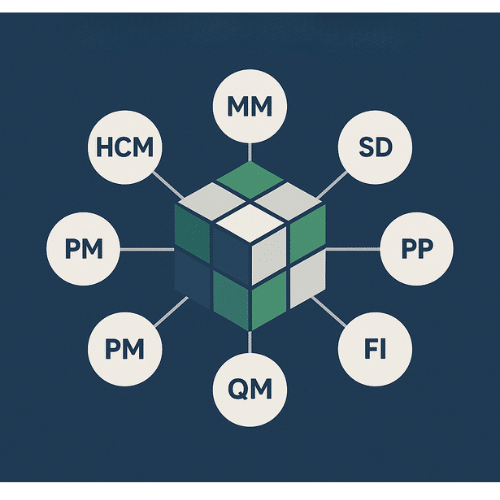
Let's take a concrete example: in an industrial company, the PP (Production Planning) module is used to plan production orders, monitor raw material consumption and optimize production flows.
At the same time, the CO (Controlling) module calculates production costs and measures product profitability.
Thanks to this architecture, SAP offers a transversal view of operations, avoiding duplication, reducing errors and improving decision-making.
An SAP module is not just a technical tool: it's a strategic management tool, helping each department to work more efficiently, while contributing to the company's overall performance.
📂 SAP module categories
The SAP system is based on a modular architecture that can be adapted to the specific needs of each company. These modules are grouped into functional categorieseach covering a specific specific field of management logistics, finance, human resources, technical...
This structuring enables SAP to meet both the requirements of large industrial organizations and the more targeted needs of SMEs and government agencies.
Each SAP module category processes a set of data linked to a business process: a purchasing department will not have the same priorities as an HR department or a management controller.
But all of them will need a system capable of share information in real timeautomate tasks, secure workflows andoptimize costs.
There are four main families:
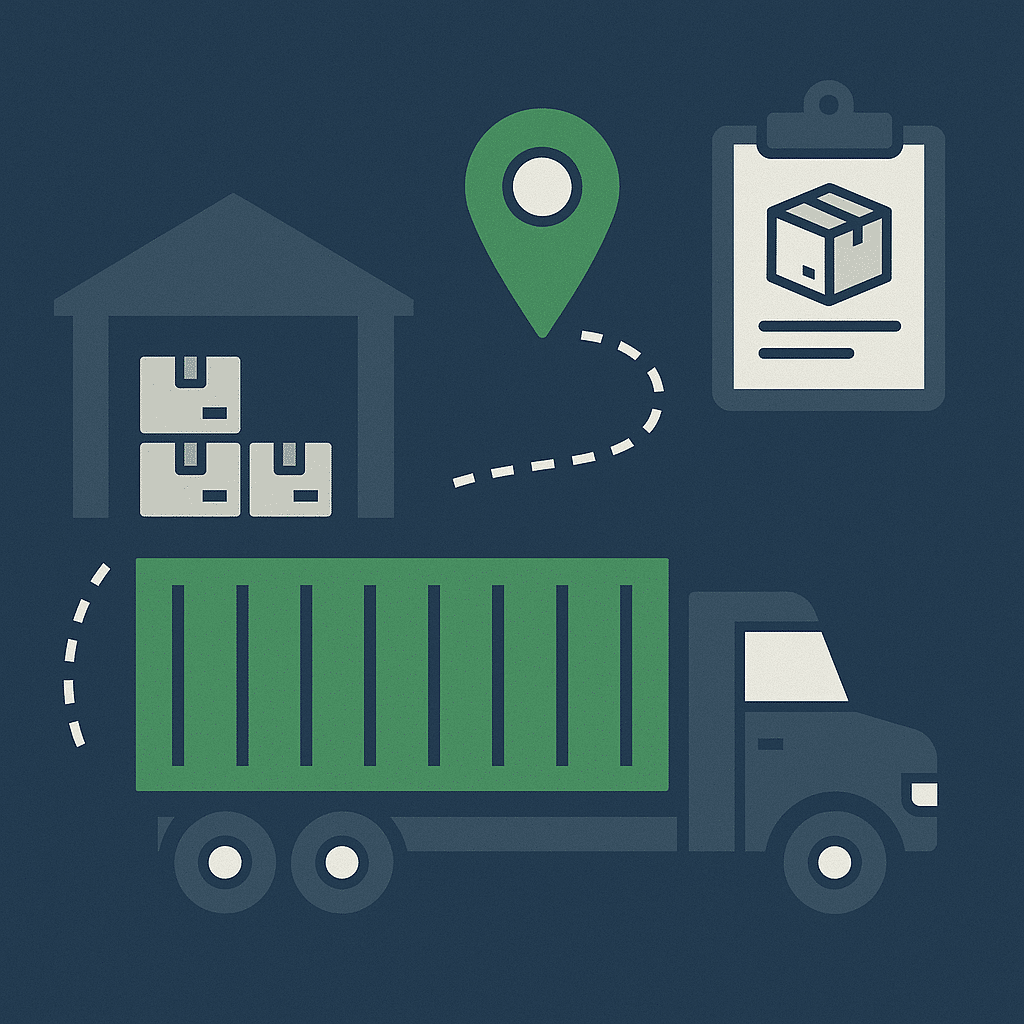
🚚 Logistics module
Logistics are at the heart of industrial and commercial companies. SAP offers a complete range of logistics modules to cover the entire chain: from raw material purchasing to customer delivery, via warehouse management, production, quality and transport.
Here are the main SAP logistics modules, each dedicated to a specific area of business processes:
Each module is a key functional pillar in the SAP ERP system, and can be activated according to the company's specific business needs.
🖥️ Technical module
SAP technical modules are the invisible foundations of the system. They are not directly used by business teams, but are essential to the smooth operation, customization and security of the ERP system.
These modules are mainly used by developers, SAP administrators and IT teams.
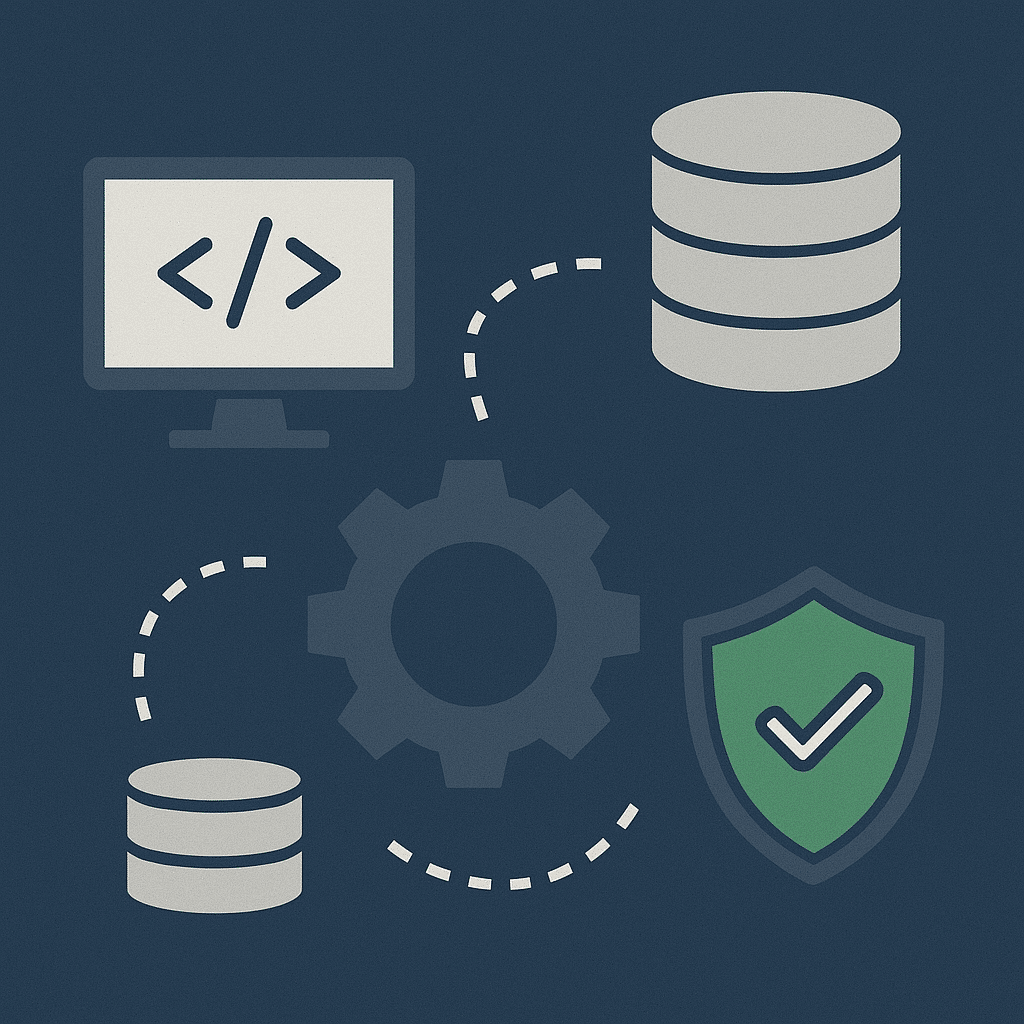
Here are the main SAP technical modules:
These modules connect SAP to other information systems, guaranteeing technical reliability and offering companies maximum flexibility in customizing their working environment.
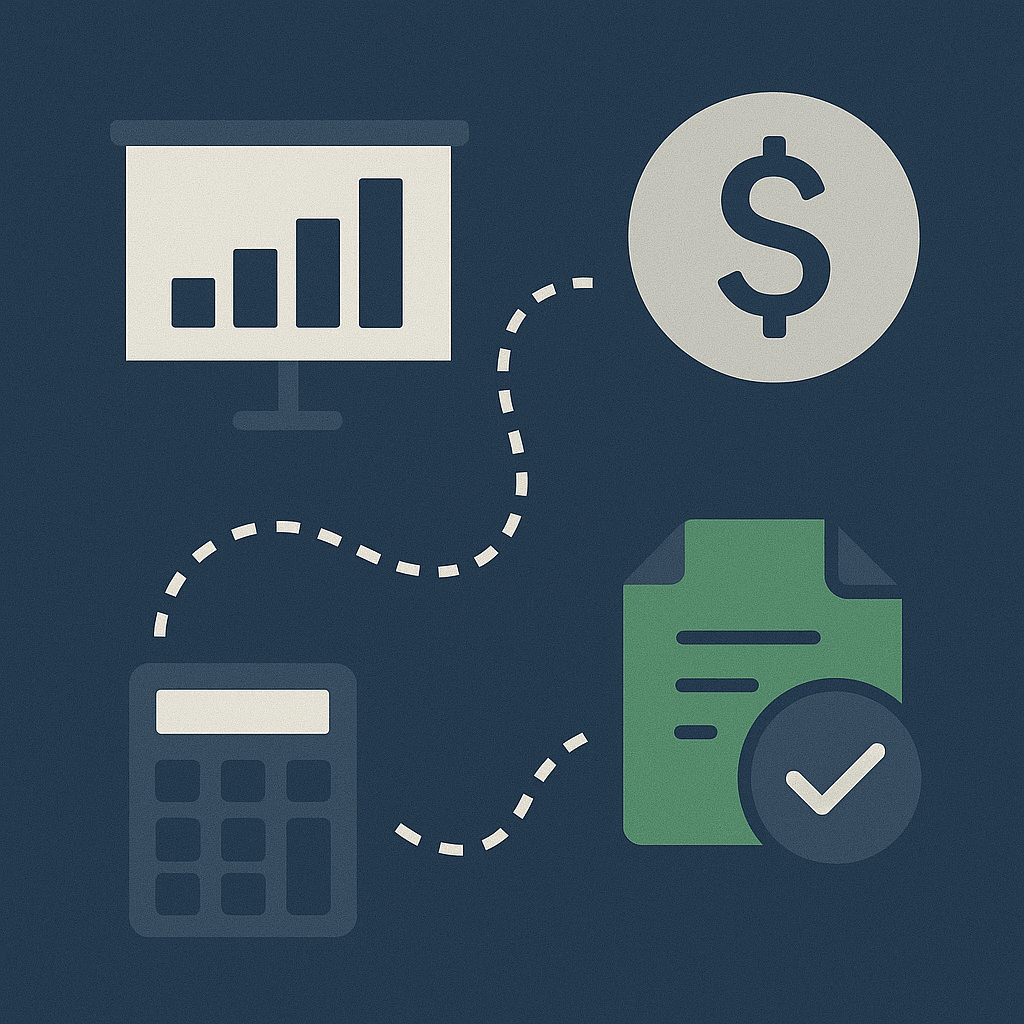
💰 Accounting module
SAP modules dedicated to accounting and financial management are among the most widely used in the business world. They enable you to manage all financial flows, guarantee regulatory compliance, and support strategic decision-making.
These modules are essential for finance departments, controllers, project managers and even auditors.
Here are the main financial modules in SAP :
These financial modules make SAP a true financial management system, capable of centralizing all accounting and management data, while offering powerful reporting and analysis functions.
👥 RH module
Visit SAP HCM (Human Capital Management) module is the solution dedicated to human resources management.
It enables companies to structure, automate and monitor all processes related to their business. human capital administrative management, time tracking, payroll, training, careers, and much more.
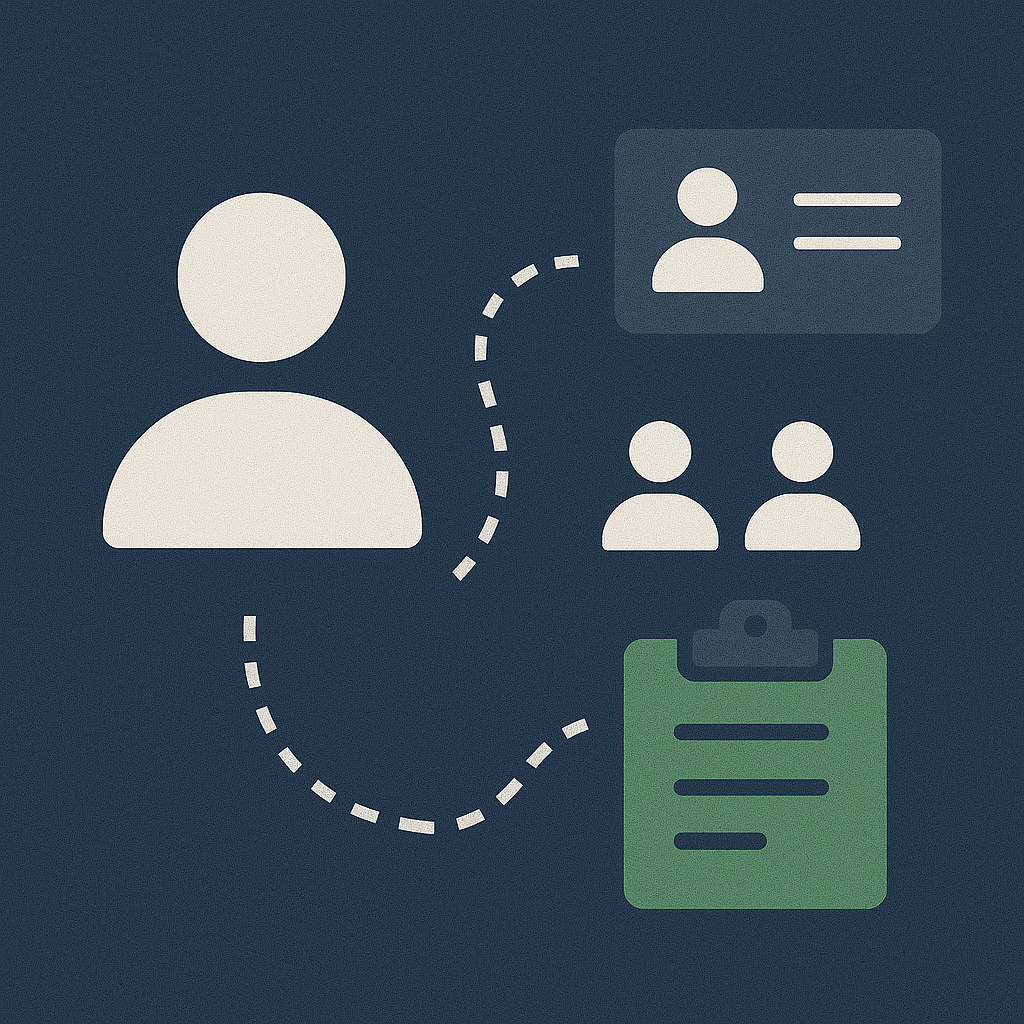
SAP HCM covers several HR sub-domains:
- Personnel data management (hiring, contracts, positions, assignments)
- Time and attendance tracking
- Payroll management (automatic calculations, social declarations)
- Training and skills management
- Talent development
This module can be used independently or in conjunction with other modules such as FI (for payroll-accounting integration) or CO (allocation of HR costs to cost centers).
In the latest versions, SAP also offers SuccessFactors, a more modern HR cloud solution designed for global talent management, mobility and HR performance management on an international scale.
🎯 What modules do you need to master to be an SAP consultant?
There isn't just one SAP consultant profile, but several, depending on the company's needs and the SAP modules deployed. However, certain modules are essential for starting a career in SAP consulting.
In general, SAP consultants start with the modules most directly linked to business processes:
- SAP FI/CO for accounting and management control
- SAP MM for purchasing and inventory management
- SAP SD for sales and billing
- SAP HCM for HR
These modules are very much in demand, as they concern universal services, present in all companies, whatever their sector or size.
Then, depending on your business experience or career plans, you can specialize in more technical modules (such as ABAP, BI or SAP Basis), or more specific ones (such as WM, EWM, PP or SuccessFactors).
A good SAP consultant doesn't just master a module: he or she also understands interconnection between modulesthe overall operation of an ERPand knows communicate with users to transform their needs into concrete solutions.
💡 Please note: some consultants initially train on a single module, but then broaden their scope of intervention working on a variety of projects. Others become highly specialized niche experts, sought after for their technical or functional expertise.
⚖️ The advantages and disadvantages of SAP modules
SAP's modular approach is its strength... but it's not without its constraints. Here's a balanced overview of advantages and limitations of this architecture.
Visit SAP modules are the fundamental building blocks of a a complete, consistent and powerful ERP system. Each module responds to a specific business need, while integrating into a global architecture designed to enhance performance.
Understanding their logic, their use cases, their interactions... this is the first step towards become a competent SAP professionalWhether you're aiming for a corporate position, a consultancy assignment, or a strategic reorientation.
At Key User Trainingwe can help you learn these modules in the right orderwith a practical, business-oriented approach and a gradual build-up of skills.
Discover our other guides :

